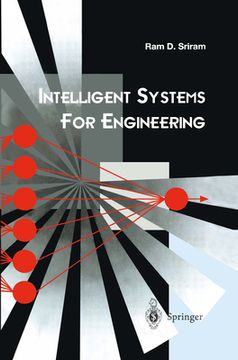Share
Intelligent Systems for Engineering: A Knowledge-Based Approach (in English)
Ram D. Sriram
(Author)
·
Springer
· Paperback
Intelligent Systems for Engineering: A Knowledge-Based Approach (in English) - Sriram, Ram D.
$ 90.45
$ 150.75
You save: $ 60.30
Choose the list to add your product or create one New List
✓ Product added successfully to the Wishlist.
Go to My Wishlists
Origin: United Kingdom
(Import costs included in the price)
It will be shipped from our warehouse between
Wednesday, June 19 and
Thursday, June 27.
You will receive it anywhere in United States between 1 and 3 business days after shipment.
Synopsis "Intelligent Systems for Engineering: A Knowledge-Based Approach (in English)"
When men of knowledge impart this knowledge, I do not mean they will convince your reason. I mean they will awaken in you the faith that it is so. - Sri Krishna, Bhagavadgita BACKGROUND The use of computers has led to significant productivity increases in the en- gineering industry. Most ofthe computer-aided engineering applications were . restricted to algorithmic computations, such as finite element programs and circuit analysis programs. However, a number ofproblems encountered in en- gineering are not amenable to purely algorithmic solutions. These problems are often ill-structured; the term ill-structured problems is used here to de- note problems that do not have a clearly defined algorithmic solution. An experienced engineer deals with these ill-structured problems using his/her judgment and experience. The knowledge-based systems (KBS) technology, which emerged out of research in artificial intelligence (AI), offers a method- ologyto solve these ill-structuredengineering problems. The emergenceofthe KBS technology can be viewed as the knowledge revolution: other important events that led to increased productivity are the industrial revolution (17th century); the invention of the transistor and associated developments (first half of the 20th century); and the world-wide web (towards the end of the 20th century). Kurzweil, in a lecture at M. LT on December 3, 1987, linked the progress of automation to two industrial revolutions: the first industrial PREFACE xxxii revolution leveraged our physical capabilities, whereas the second industrial revolution - the knowledge revolution - is expected leverage oUr mental ca- pabilities.
- 0% (0)
- 0% (0)
- 0% (0)
- 0% (0)
- 0% (0)
All books in our catalog are Original.
The book is written in English.
The binding of this edition is Paperback.
✓ Producto agregado correctamente al carro, Ir a Pagar.

